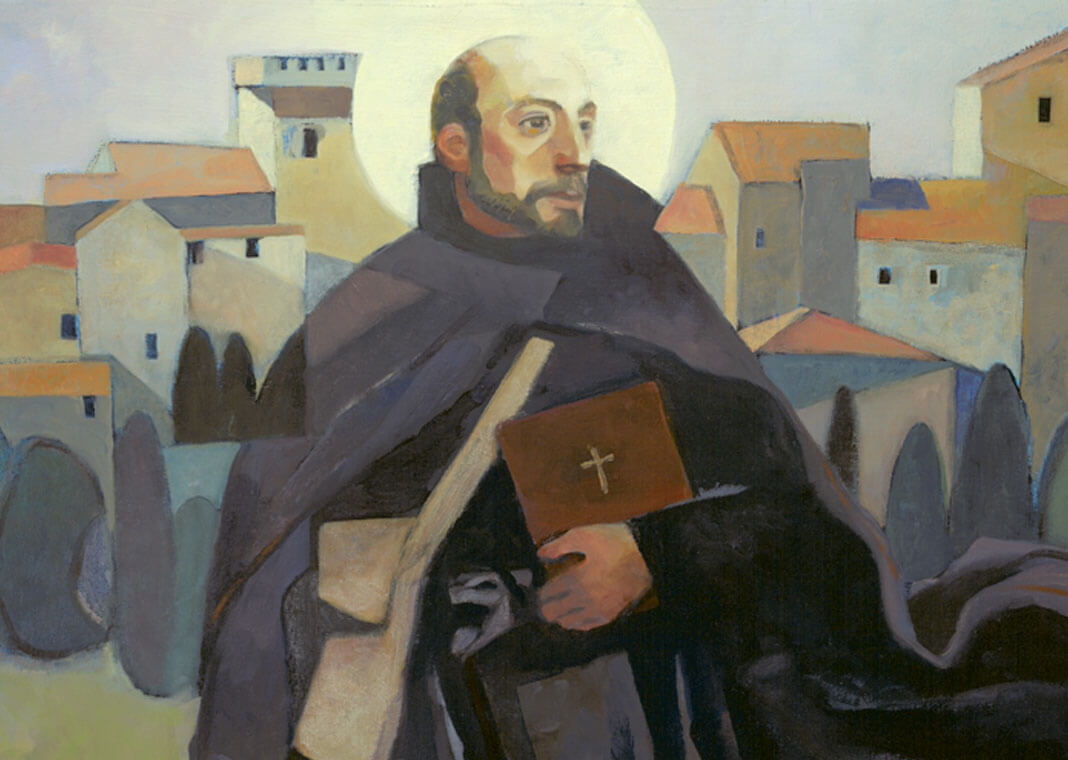We think of Ignatius alone in his cave in Manresa, who wages a spiritual battle and learns to recognize God’s direction for him. Ignatius was sometimes overwhelmed by guilt about his pre-conversion life. He suffered from what we now call ruthlessness, an obsession with any sins we have committed or rules that we have not followed perfectly. He finally got out of this dark place, quite a miraculous release from his guilt, and he attributed it to God’s grace.
All along, however, Ignatius was involved in a religious community that was critical to his spiritual advancement. He regularly saw a confessor who encouraged him to let go of his guilt and even forbade Ignatius to continue confessing certain sins. There were also some believing women in the church who saw in Ignatius a man of true faith who needed support. I can imagine them coming to him with food in hand to make sure he is not adding strict fasting to his exercises. I can also imagine them suggesting that it would be okay to bathe and cut his hair and nails, practices he had given up to atone for his former vanity over his looks.
The point is that Ignatius accepted these relationships as an aspect of God’s communication with him. He believed that God could speak directly to each of us. This was the focus of the retreat, a person who was learning to draw ever closer to God, but Ignatius did not see the spiritual life as a solitary residence. The importance of fellowship is evident in the literally thousands of letters he wrote to others – Jesuits and lay people, men and women – to promote their spiritual growth.
There is a place for loneliness in healthy spiritual life. But a person who is always alone and only relies on his personal experiences to discover his spiritual path has entered dangerous terrain. Christians believe they belong to the body of Christ and each part relies on the other; no one survives well alone. Even in a saint like Ignatius of Loyola, we see continued commitment to the Church, although the commitment sometimes brought some trials or protests. Ignatius’ writings were brought before the Inquisition more than once for daring to tell people that they could be in direct relationship with their Creator. But he was set free from teaching heresy, and he continued to work as a person in a vast ministry of believers. We remember that the Jesuits made a special vow to do whatever the Pope asked them to do; that’s how high they held the church.
It seems to me that especially in the USA, where we are so indoctrinated with the idea of individuality and personal freedom and the self-made man or woman, we are often tempted to adopt an individualistic belief. We think that whatever God has to say to us must happen in our personal prayer or some other private experience. We forget that God uses others to help us, to encourage us, to correct us, and to teach us. Sometimes these others are in the institutional church, like our pastors and faith formation teachers, and sometimes the others who help us are friends, family members, a spiritual leader, a doctor or counselor, or a specialist in an area in which we hurt All of these people and relationships are gifts from God. And we are foolish if we refuse to see God’s love reach us through them. Ignatius was smart enough to pay attention to what his confessor advised and what his friends had to say. May we all learn this wisdom.

